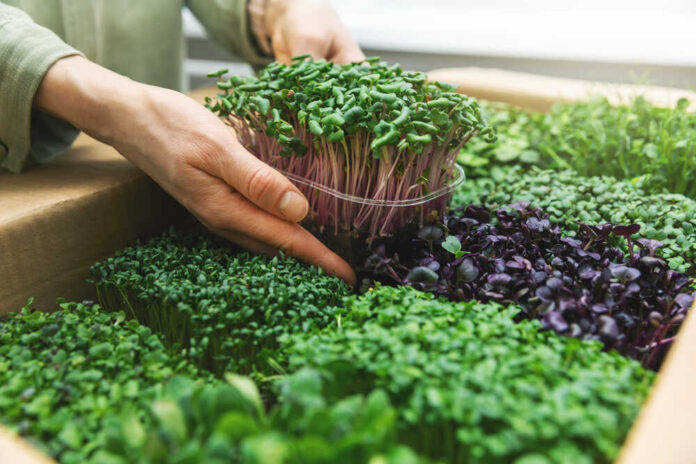
When we think about health, we often visualize dramatic narratives—cholesterol skyrocketing due to that extra slice of cake or blood sugar levels plummeting, urging a quick sugar fix.
What we don’t readily see are the less evident yet equally menacing nutrient deficiencies subtly sabotaging our well-being. Fatigue, poor concentration, and weakened immunity — these quiet rebels gradually manifest over time, urging you to take notice.
Microgreens: The Powerhouse of Nutrients
In a landscape where supplements and fad diets seem to promise a quick fix, nature has always had a straightforward answer.
A new study published in July 2023 brings this truth to the forefront by investigating seventeen types of microgreens from seven different botanical families. Conducted under rigorous environmental controls, the study aimed to provide an in-depth understanding of the nutritional makeup of these young plants.
The most revealing outcome was the genotypic variation across the board, meaning that each species offered something unique. Nutrients like Nitrogen and Potassium were abundant, making up 38.4% and 33.8% of macro-minerals, respectively. These microgreens not only serve as a significant source of vital macro-minerals but also trace micro-minerals such as Iron, Zinc, and Manganese.
However, it’s not a one-size-fits-all solution. For example, except for sunflowers, most microgreens had high to very high nitrate levels, which are detrimental in excess. So, while these tiny greens are powerhouses, their mineral profiles are largely determined by their genotype, making some better suited for certain nutritional needs than others.
Turning Insight into Action: Microgreens to Add To Your Diet
While the study reveals the broad scope of nutrients that microgreens offer, here are specific options that you should consider incorporating into your diet:
Potassium-Rich Microgreens
- Arugula
- Cilantro
- Mustard greens
Potassium is vital for heart health and fluid balance. These microgreens are not just delicious but can be a dietary source of this essential element.
Calcium-Focused Choices
- Red cabbage
- Scallion
- Amaranth
Calcium is pivotal for bone health and nerve function. If dairy isn’t your thing or you’re looking for supplementary sources, these microgreens come to the rescue.
Copper-Abundant Options
- Sunflower
- Shiso
- Scallion
Copper aids in various enzymatic reactions and supports the formation of hemoglobin. These microgreens can be your go-to choices for boosting copper levels.
High Iron Microgreens
- Spinach
- Swiss chard
- Kale
Iron is crucial for oxygen transport in the blood. These greens can supplement your regular diet and contribute to your iron needs.
While we live in a world of excess, many of us paradoxically suffer from various deficiencies. The latest studies suggest that these nutrient-dense microgreens can be an accessible and efficient way to address these insufficiencies, offering a sustainable alternative to artificial supplements and fortified foods.
So the next time you’re grocery shopping, don’t overlook these miniature giants sitting unassumingly in the fresh produce aisle. They may just be the solution your body has been silently yearning for.






















